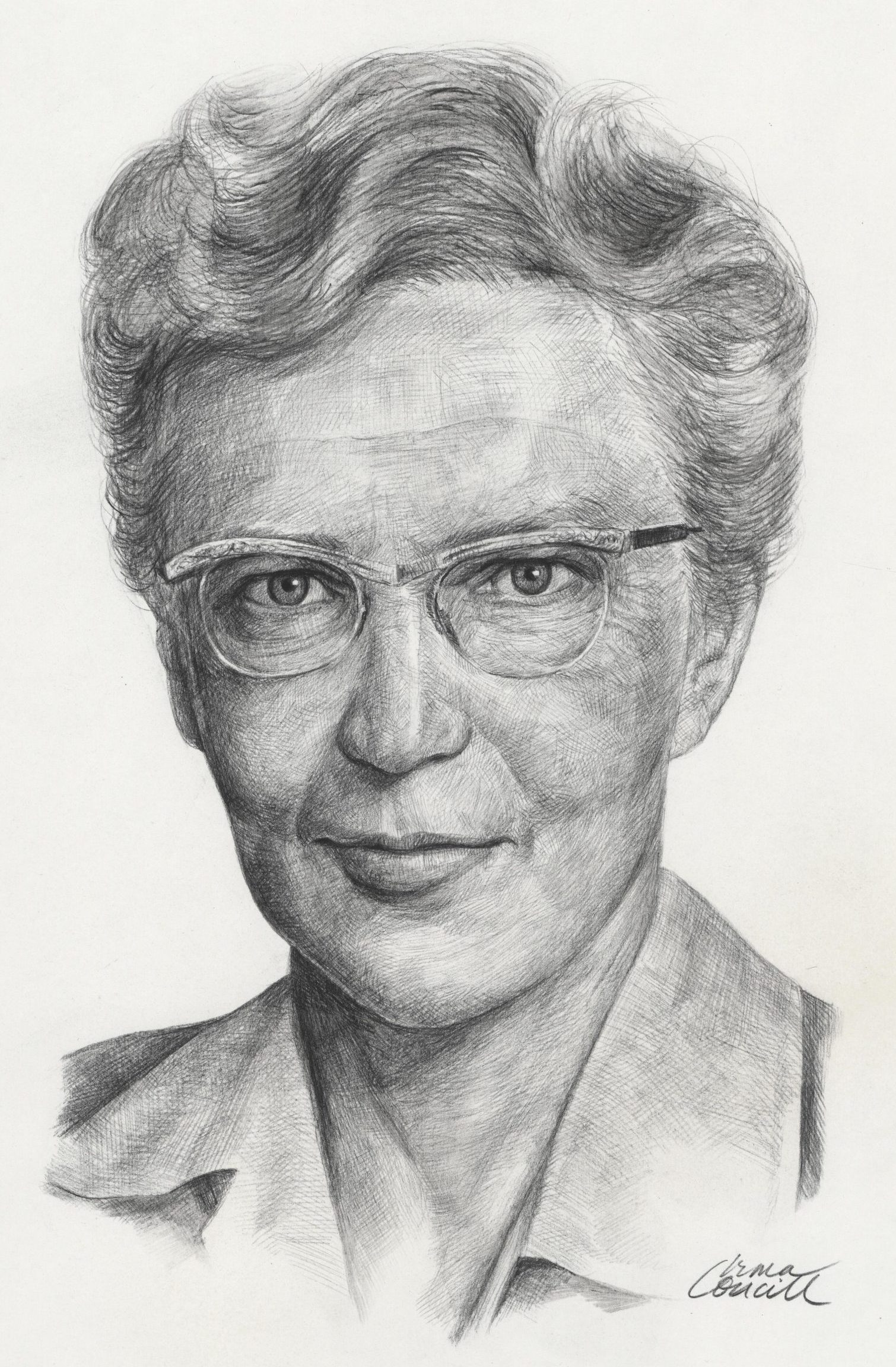Elizabeth Muriel Gregory MacGill

Nickname: Elsie
Birth Date: March 27, 1905
Birth Place: Vancouver, British Columbia
Death Date: November 4, 1980
Year Inducted: 1984
Awards: OC; DSc (Hon); LLD (Hon); Gzowski Medal (Engineering Institute of Canada); FASI; FRAS; FEIC; American Society of Women Engineers Medal; Julian C Smith Memorial Medal (EIC); The Amelia Earhart Medal (The 99s)
Her contribution to Canadian and international design and engineering, her high honours, her resolve that led her to the top of her profession, have been of outstanding benefit to Canadian aviation
Becoming an Engineer
Elizabeth Muriel Gregory (Elsie) MacGill, O.C., B.Sc., M.Sc., D.Sc.(Hon.), LL.D.(Hon.), was born in Vancouver, British Columbia, on March 27, 1905. She received her education in Vancouver and then attended the University of Toronto. In 1927 she became the first woman to graduate from that university with an Electrical Engineering Degree. This was followed by graduate study at the University of Michigan, where, in 1929, she became the first woman to receive a Masters Degree in Aeronautical Engineering.
While MacGill was at the University of Michigan, she was stricken with acute infectious myelitis, a form of polio. She wrote her final exams from her hospital bed, determined that her disability would not stop her pursuit of a career in engineering. In 1933 she enrolled at the Massachusetts Institute of Technology to further her post-graduate work in aeronautics. In 1934 she was hired as an engineer at Fairchild Aircraft Limited at Longueuil, Quebec. During her time with the company she worked on stress analysis of the prototype Fairchild Super 71, which had the first stressed-skin, all-metal fuselage designed and built in Canada.
Making History
In 1938 she left Fairchild to become Chief Aeronautical Engineer at the Fort William (Thunder Bay) plant of Canadian Car and Foundry Company Limited. It was there that she became the first woman to work on the over-all design of an airplane, the Maple Leaf II, a two-seat, single-engine biplane designed as a primary trainer for use on wheels, skis or floats. This trainer received its certificate of airworthiness, aerobatics category, within eight months of the commencement of design, an outstanding achievement. She flew with the pilot as an observer on all test flights of this little trainer.
The Hawker Hurricane
A few weeks after the beginning of World War II in 1939, she was informed that the plant would be involved with large-scale production of military aircraft. She was put in charge of all engineering work related to the Canadian production of the British-designed Hawker Hurricane fighter. Within a year the old railway car plant was producing three fighters a day with a staff of 4,500. A total of 1,450 Hurricanes were produced in just two years. When this contract was completed, MacGill was responsible for the production of 835 Curtiss Hell Divers for the U.S. Navy.
The First Woman to..
In 1937 she became the first woman to be admitted to corporate membership in the Engineering Institute of Canada and received the Institute's Gzowski Medal in 1940 for her paper on "Factors Affecting the Mass Production of Aeroplanes." In 1943, MacGill left Canadian Car to set up her own consulting business in Toronto as an aeronautical engineer. That same year she married a fellow aircraft designer, E.J. (Bill) Soulsby, Assistant General Manager of Victory Aircraft Limited at Malton, Ontario.
In 1946 MacGill became the first woman to serve as Canadian Technical Advisor to the International Civil Aviation Organization (ICAO), where she helped draft the international air worthiness regulations for the design and production of commercial aircraft. In 1947 she served as chairman of the stress analysis committee at ICAO, the first woman to hold this position.
Honours and Recognition
MacGill held Fellowships in the Canadian Aeronautics and Space Institute, the Royal Aeronautical Society, and the Engineering Institute of Canada. She was a member of the American Institute of Aeronautics and Astronautics, and the first woman member of the Association of Professional Engineers of Ontario.
MacGill's contributions and accomplishments earned her wide recognition and many honours. The American Society of Women Engineers honoured her in 1953 and presented her with the Society's medal, the first time these distinctions were granted to someone outside of the United States. The Canadian Government, recognizing her substantial contributions, appointed her an Officer of the Order of Canada (O.C.) in 1971. She received the Engineering Institute of Canada Julian C. Smith Memorial Medal in 1973. The Ninety-Nines International Organization of Women Pilots awarded her the Amelia Earhart Medal in 1975. Four Universities conferred Honorary Doctorates on her: Toronto (1973), Windsor (1976), Queens (1978) and York (1978).
Fighting For Women
In addition to her aeronautical pursuits, she had a concern for the legal rights and status of women, became active in women's organizations throughout Canada, and was highly respected for her thoughtful and constructive views. In 1967 she was one of the seven appointees to the Royal Commission on the Status of Women. Just prior to her death she had accepted an appointment to the Canadian Organizing Committee for the 1981 International Year of the Disabled. She died in a car accident at Cambridge, Massachusetts, U.S.A., on November 4, 1980, before she could participate on this committee.
Elsie MacGill was the author of many technical aviation articles and a biography, "My Mother the Judge", which is about her mother, Judge Helen Gregory MacGill, who was judge of the Juvenile Court in Vancouver for 22 years.
Elizabeth Muriel Gregory (Elsie) MacGill was inducted as a Member of Canada's Aviation Hall of Fame in 1984 at a ceremony held in Edmonton, Alberta at a ceremony held in Edmonton, Alberta.
To return to the Inductee Page, please click here.
